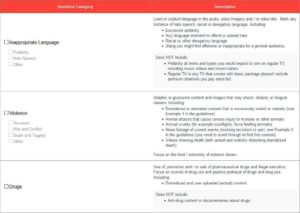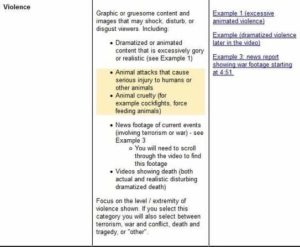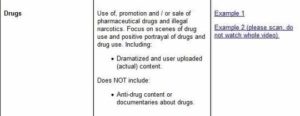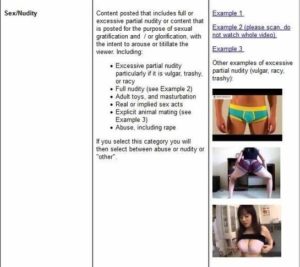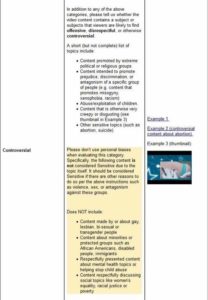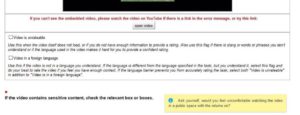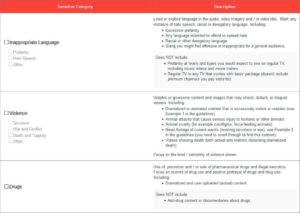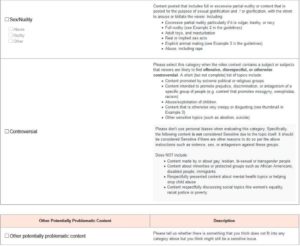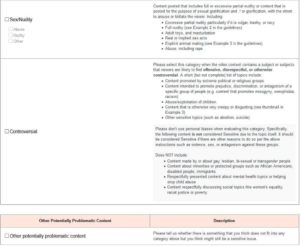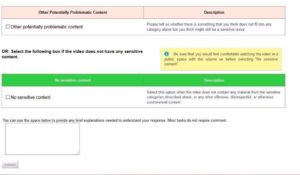Below is an anonymous post regarding the Youtube demonetization situation that has hit many Youtube creators throughout 2017. As said, at the time of this posting, the source of this information is anonymous so take their words with a grain of salt. If the below is true it is pretty damning information for what is happening behind the scenes at Youtube.
Hello,
Allow me to preface first with a few things before we get into this. I am a YouTuber. I am posting this anonymously because I feel the information should get out, as it could benefit creators with insight, but I also am concerned by the potential repercussions sharing these things could bring about.
I was contacted some time ago by a person who was a viewer of my work. This person (henceforth known as “my contact”) worked for a company that ended up being connected to Google/YouTube. I will not provide too many details about this person in order to protect them, but they became my “eyes and ears” behind the scenes on what was going on with YouTube’s new policies and policy enforcement (things they’ve refused to be upfront or direct about). In the midst of “codes” and creators trying to further figure out how to tell if their content is at risk, I felt the need to release this with my contact’s blessing.
Google, some months ago, put out a job posting which required a number of different people to work on one project. Google claimed in the posting that they needed a third party company to work as “web search evaluators.” My contact worked for the unnamed company that put in for the job and was accepted by Google. My contact didn’t know what to expect from the job, but was told to sign a Non-Disclosure Agreement in order to be a part of it. My contact accepted and signed the NDA. That is when things changed.
Once the NDA was signed, my contact found that they weren’t working as a “web search evaluator.” They were demonetizing YouTube videos. They would be given YouTube videos to review and had a checklist of sorts to go through to be sure the video fit (or didn’t fit) certain criteria. You can see screenshots from my contact’s end in this post via Imgur.
One of the most important things to take away from this is that if the person reviewing the video wouldn’t feel comfortable watching the video in public, it should automatically be demonetized. My contact stated that the company told them that if they were on the fence about a video and didn’t really know if it violated any of YouTube’s new “rules,” to demonetize the video anyway. Also, if the reviewer doesn’t find anything listed that’s wrong with the video, they are allowed to insert their own personal belief on something that is sensitive or inappropriate and can have the video demonetized that way, as well.
Here are the screenshots from the third party company’s viewpoint:
This will hopefully provide insight for creators who are confused on how YouTube decides what is okay and what isn’t. Truthfully, it’s not really YouTube who is deciding it. It’s the employees at the company they hired to review the videos. It’s my belief that anytime you request a manual review, these people are the ones conducting it, and they can demonetize for whatever reason they see fit, even if they personally disagree with the content or message. This could explain why many videos that don’t violate any known criteria can still be demonetized by manual review. Because the reviewer thought it should be based on their own reasoning.
Now, as for the secret meeting, which may or may not tie into this whole issue (you decide if you think it does)…
This all started to take effect after YouTube held a private meeting with select creators. Obviously the media issues gave this all a violent shove into reality, but YouTube had been ramping up to make changes before this all came to pass. A different contact of mine was involved in the secret meeting with YouTube, which took place around mid 2016 at a Google office in Los Angeles. The meeting had one purpose: to discuss what should be done with unwanted creators on their platform. Some unwanted channel names that were mentioned were Leafyishere, GradeAUnderA, Keemstar/DramaAlert, Scarce, and Onision.
In attendance were a number of higher ranking individuals from a few different departments at YouTube. CEO Susan Wojcicki was not in attendance.
All the creators in attendance were made to sign NDAs. The creators were asked what they felt should be done about the more toxic channels on YouTube. There was no conclusion from YouTube’s end, but it was agreed upon that no censorship or channel deletion should occur and that something else should be done. Months later, demonetization began sweeping the platform and hindering the growth of countless channels. Now many of us know the reasons for this. Ad companies got spooked by offensive content that was monetized. However, I am unsure as to whether or not the demonetization is enforced as strictly as it is to also help drive certain unwanted players off the field, in keeping with what concerns were discussed at the meeting.
I hope this information proves useful to some of you. That’s all for now. If we can get this information around, I feel it will at least help creators get a better grip on what they’re up against. Share the screenshots, make videos discussing it, or simply observe, whatever you feel is best for you.
I wish you well,
-TD

